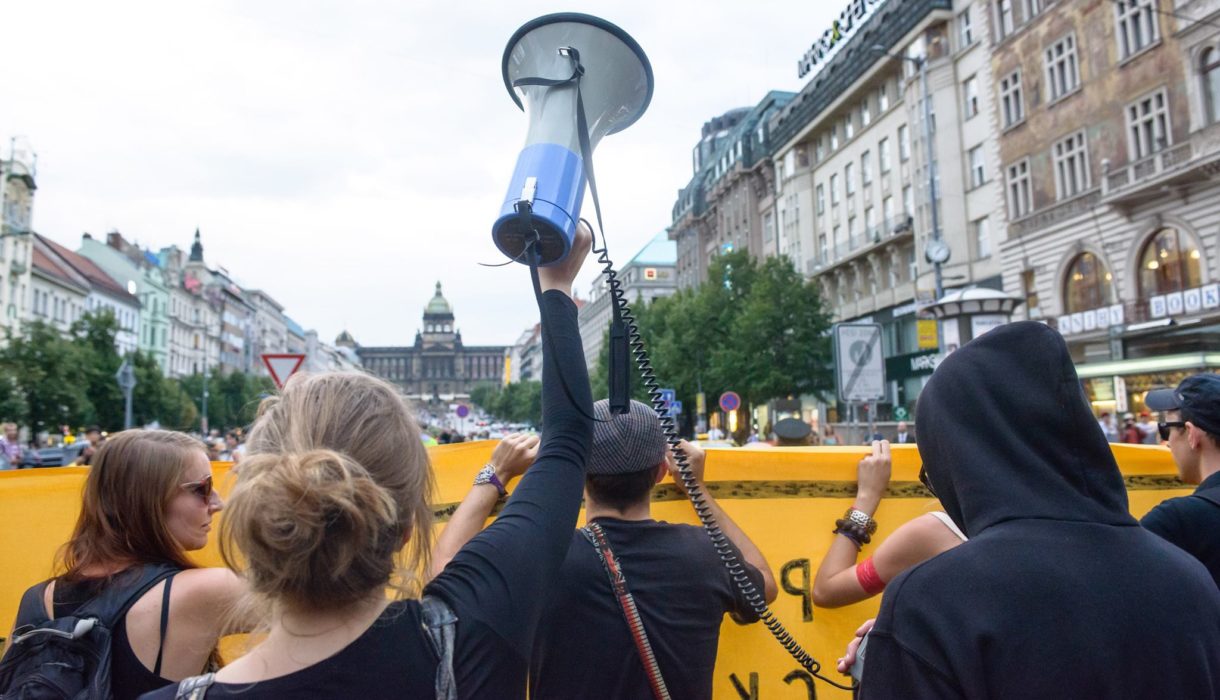
31 maj, online. The workshop will explore Central and Eastern European feminist perspectives on the hierarchising and necropolitical character of the European East-West divide as well as visions for just futures.
In contemporary global terms, the ‘Eastern European’ region is perceived as part of Europe. After 1989, the neoliberalisation of the market,
Westernisation of culture and social values, and subsequent entry into the European Union made the countries that used to be part of the so-called Eastern Block ‘finally’ European.Yet, being from ‘Eastern Europe’ carries certain devaluing connotations that lead to social hierarchisation in everyday and institutional encounters. In the West, individuals from Eastern and parts of Central Europe (CEE) – and women in particular – have long been othered, structurally marginalised and utilised as cheap labour. In the current COVID-19 pandemic, the devaluation of CEE workers obtained a literal necropolitical character when several West-European countries protected the lives of their residents through social pandemic measures, such as ‘lockdown,’ while at the same time imported, with minimal health protections, poor working conditions and low wages, a CEE migrant labour force to harvest seasonal crops and provide care work.
This workshop will bring together CEE feminist scholars, who are academically located within both CEE and Western Europe, to discuss what it means to be equal-but-not-quite as CEE subjects, feminists, activists, workers and academics, in the context of being part of Europe and the world more globally. Speakers will be invited to reflect on where CEE is in intersectional theory and how CEE experiences contribute to the analysis of power relations in Europe.
By relating old and new CEE scholarship with a broad range of anti-racist and decolonial feminist theories, the workshop will inform international feminist and decolonial debates, which commonly fail to include CEE voices and scholarship. Incorporating CEE perspectives is crucial for an in-depth analysis of the nuances of oppression, the broadening and deepening of intersectional debates on gender and race as social categories of power and for identifying ways to foster intersectional justice in Europe and beyond.
The workshop is dedicated to the memory of trailblazing feminist scholars Hana Havelková and Marina Blagojević Hughson.
Event photo: thanks to Petr Zewlakk Vrabec – Zewlakk aktivistická fotografie
Programme
All talks will involve 20 mins for presentations and 10 mins for Q&A
10:00-10:15 Welcome: Tereza Hendl (University of Augsburg/Ludwig-Maximilians-University in Munich) and Magdalena Górska (Utrecht University)
10:15-10:45 Madina Tlostanova (Linköping University) – Equality Revisited: a Decolonial View on the Perpetual Construction of Internal European Others
10:45-11:00 break
11:00-11:30 Petra Ezzeddine (Charles University) and Zuzana Uhde (Czech Academy of Sciences) – Essential, Exploited and Unequal: Borderscapes of the Political Economy of Social Reproduction in Europe
11:30-12:00 Angéla Kóczé (Central European University) – Configuration of ”Coloniality of Power” through the Gendered Racialization of Roma in Post-Socialist Europe
12:00-13:00 lunch break
13:00-13:30 Tereza Hendl (University of Augsburg/Ludwig-Maximilians-University in Munich) – Examining Western Dimensions of White ‘Privilege’ and Supremacy: On the Need for an Intersectional Theory of Whiteness
13:30-14:00 Adriana Qubaiova (independent scholar) – Between the Easts: What Can We Gain from an Inter-regional Perspective Between the Middle East and Eastern Europe?
14:00-14:15 break
14:15-14:45 Kateřina Kolářová (Charles University) – The Cruel Optimism of Rehabilitative Postsocialism: Imagining the Crip Critique from the ‘East’
14:45-15:15 Ewa Majewska (independent scholar) – Weak Resistance in the Former East: Feminist and Queer Struggles
15:15-15:30 break
15:30-16:00 Čarna Brković (University of Göttingen) – (South)East Europe and Geopolitics of Surprise in Anthropological Epistemology
16:00-16:45 Discussion Panel: Visions for Decolonial Feminist Futures, chaired by Věra Sokolová
16:45-17:00 closing remarks: Magdalena Górska
Evenemang av Tereza Hendl
Måndag 31 maj 2021 klockan 10:00–17:00
Gratis online via Zoom för alla på och utanför Facebook
Further information and registration.
